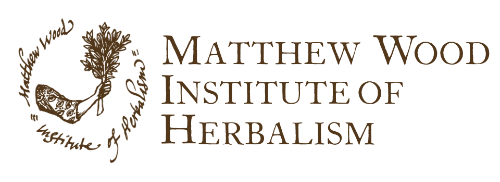Warrior... Provider... Nerd... Jock... Brains... Thankfully, the rigid male gender stereotypes embedded in our culture from past generations are beginning to shift. This is good news for male physical and mental health. Though change is taking place, it's very slow and these stereotypes are still very much alive in the media, the movies, and in society in general.
In my practice, male clients have tended to seek herbal and nutritional help in the areas of high cholesterol, high blood pressure, and reproductive health, especially virility. Most likely, they made the appointment because either their yearly checkup uncovered an issue, and their physician is now recommending pharmaceutical drugs, or they are having problems with lack of sex drive or with their prostate health.
Otherwise, it's their wife, partner, girlfriend, sister, mother, or concerned friend that is contacting me for help and information because the person they care about won't seek help themselves. Maybe it's because of the Man Box? The Man Box is the societal view of what constitutes a "real" man.
This has been such a pattern over the years that it prompted me to do a bit of research on how I can best serve and support clients who are caught in the Man Box.
Fortunately, men are beginning to step outside this box and seek preventive health measures rather than waiting until they are really sick to seek healthcare. Even with these changing norms, many males are still caught in the negative messaging of the Man Box.
According to a study conducted by the Jesuit Social Service Men's Project in Australia, there are several areas where these stereotypes affect men's health and relationships.
Other attitudes toward health and healthcare include:
Thankfully, more and more men are recognizing that these stereotypes aren't healthy. Younger men especially are beginning to create new norms that are more holistic and self-nurturing.
For example, a holistic approach (body, mind, spirit) might include:
In the class on Male Reproductive Health, we approach men's health issues from a holistic point of view. How can we help support the person who is taking cholesterol-lowering medication that is now causing a lack of sex drive? What herbs are useful for an enlarged prostate? What conditions that will respond to herbs affect the male reproductive system? What about that prostate? Erectile dysfunction? Low testosterone?
Join us as we discuss men's health issues
In my practice, male clients have tended to seek herbal and nutritional help in the areas of high cholesterol, high blood pressure, and reproductive health, especially virility. Most likely, they made the appointment because either their yearly checkup uncovered an issue, and their physician is now recommending pharmaceutical drugs, or they are having problems with lack of sex drive or with their prostate health.
Otherwise, it's their wife, partner, girlfriend, sister, mother, or concerned friend that is contacting me for help and information because the person they care about won't seek help themselves. Maybe it's because of the Man Box? The Man Box is the societal view of what constitutes a "real" man.
This has been such a pattern over the years that it prompted me to do a bit of research on how I can best serve and support clients who are caught in the Man Box.
Fortunately, men are beginning to step outside this box and seek preventive health measures rather than waiting until they are really sick to seek healthcare. Even with these changing norms, many males are still caught in the negative messaging of the Man Box.
According to a study conducted by the Jesuit Social Service Men's Project in Australia, there are several areas where these stereotypes affect men's health and relationships.
- A "real man" figures out their own problems without asking for help.
- A "real man" always acts strong and in charge.
- A "real man" looks attractive but doesn't spend time taking care of themselves.
- A "real man" accepts his place in the world as a provider and doesn't do household chores.
- A "real man" is straight.
Other attitudes toward health and healthcare include:
- A "real man" won't waste money or time on a doctor's visit.
- Sickness is a weakness and a "real man" never appears weak (or old).
- Being sick is a form of losing control.
Thankfully, more and more men are recognizing that these stereotypes aren't healthy. Younger men especially are beginning to create new norms that are more holistic and self-nurturing.
For example, a holistic approach (body, mind, spirit) might include:
- Understanding that asking for help, seeking preventive healthcare, and working to maintain a healthy body is not a sign of weakness.
- Showing caring and nurturing for themselves and others is not a sign of weakness.
- Understanding that domestic roles and chores are not defined by gender.
- Understanding that gender identity and gender roles can be fluid.
- Understanding that aging does not mean a person is incapable of taking care of independent living.
- Understanding that holistic approaches and support such as herbs, nutrition, lifestyle changes, exercise, and practices such as meditation can play a role in preventing illness and maintaining health.
In the class on Male Reproductive Health, we approach men's health issues from a holistic point of view. How can we help support the person who is taking cholesterol-lowering medication that is now causing a lack of sex drive? What herbs are useful for an enlarged prostate? What conditions that will respond to herbs affect the male reproductive system? What about that prostate? Erectile dysfunction? Low testosterone?
Join us as we discuss men's health issues
References
- Hill AL, Miller E, Switzer GE, Yu L, Heilman B, Levtov RG, Vlahovicova K, Espelage DL, Barker G, Coulter RWS. Harmful masculinities among younger men in three countries: Psychometric study of the Man Box Scale. Prev Med. 2020 Oct;139:106185. doi: 10.1016/j.ypmed.2020.106185. Epub 2020 Jun 25. PMID: 32593728; PMCID: PMC8715836.
- Galdas PM, Cheater F, Marshall P. Men and health help-seeking behaviour: literature review. J Adv Nurs. 2005 Mar;49(6):616-23. doi: 10.1111/j.1365-2648.2004.03331.x. PMID: 15737222.
- https://mensline.org.au/mens-mental-health/male-stereotypes-and-the-man-box/#:~:text=Rigid%20gender%20roles%3A%20Men%20don,never%20says%20no%20to%20sex.
- https://jss.org.au/what-we-do/the-mens-project/
**Disclaimer**
The information provided in this digital content is not medical advice, nor should it be taken or applied as a replacement for medical advice. Matthew Wood, the Matthew Wood Institute of Herbalism, ETS Productions, and their employees, guests, and affiliates assume no liability for the application of the information discussed.
The information provided in this digital content is not medical advice, nor should it be taken or applied as a replacement for medical advice. Matthew Wood, the Matthew Wood Institute of Herbalism, ETS Productions, and their employees, guests, and affiliates assume no liability for the application of the information discussed.


